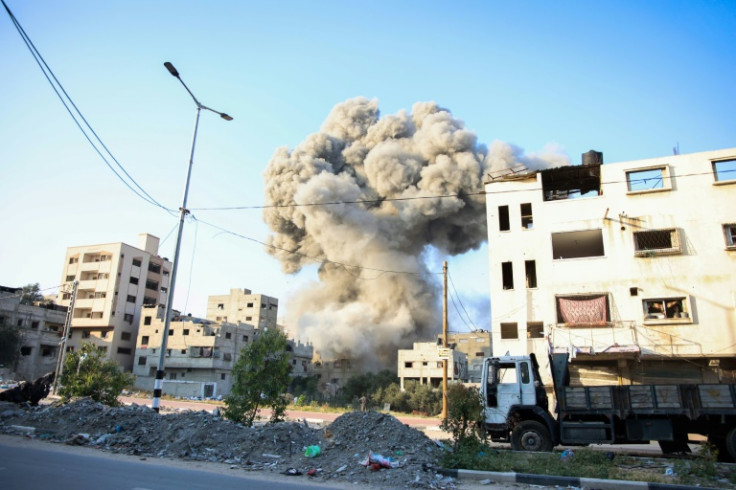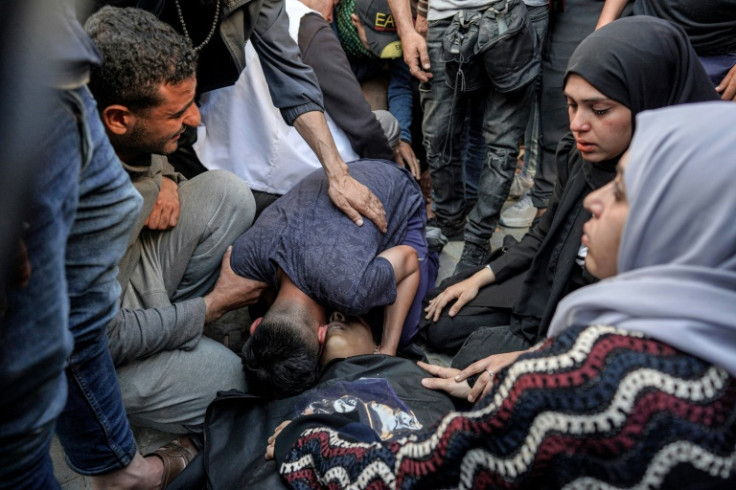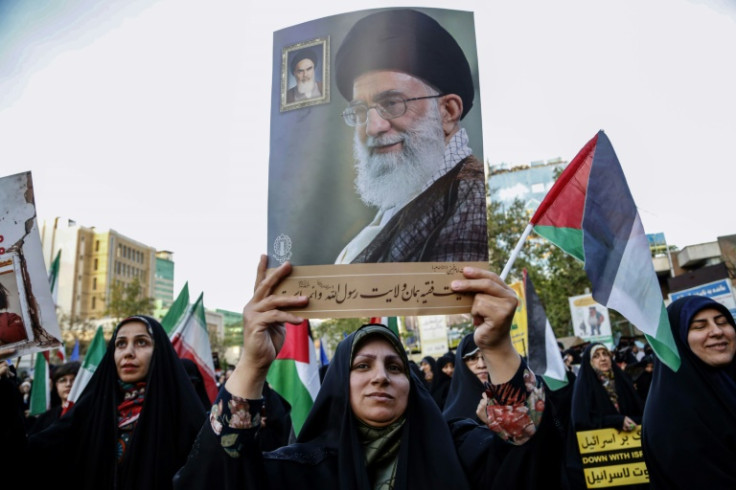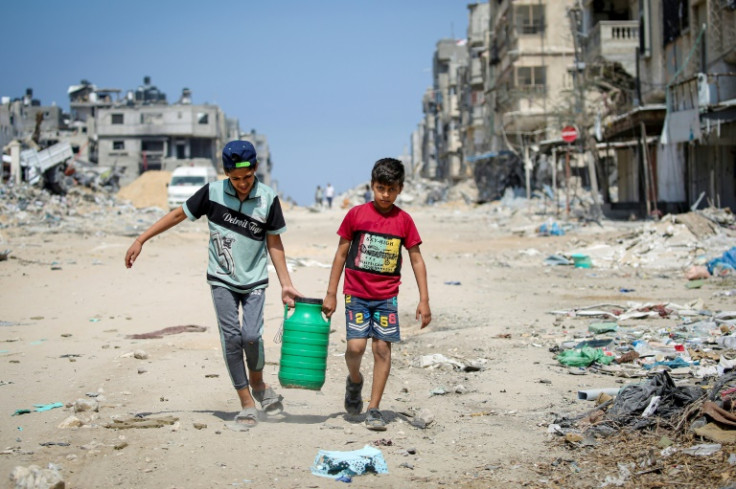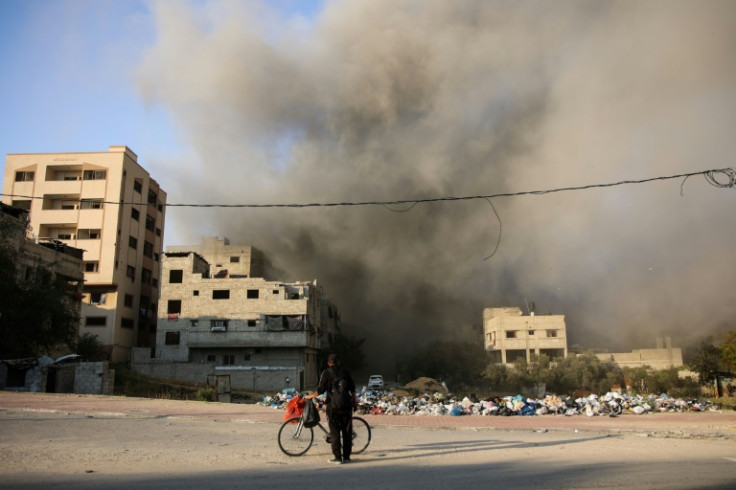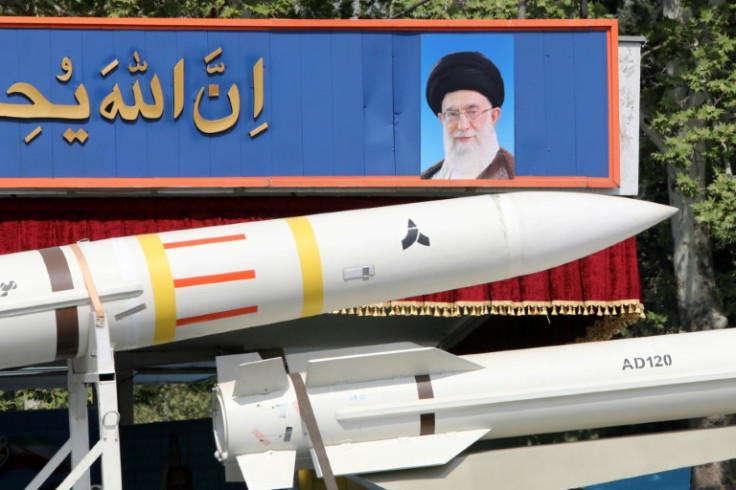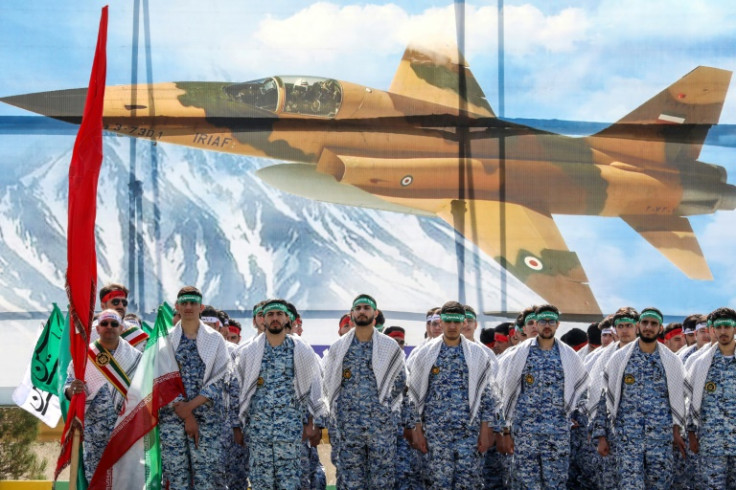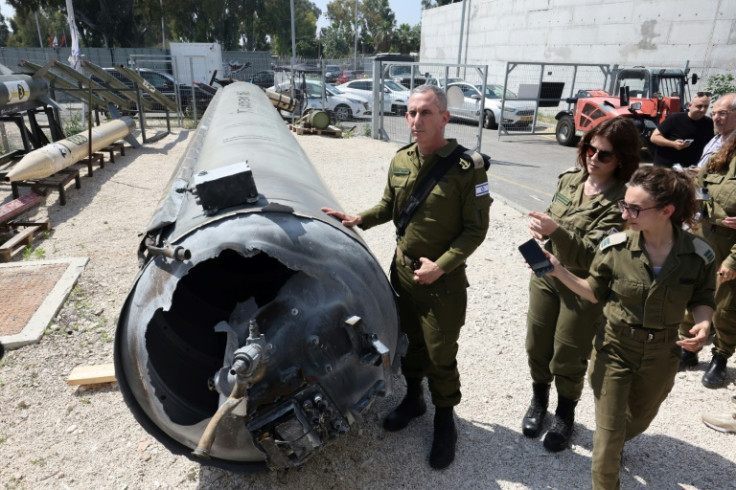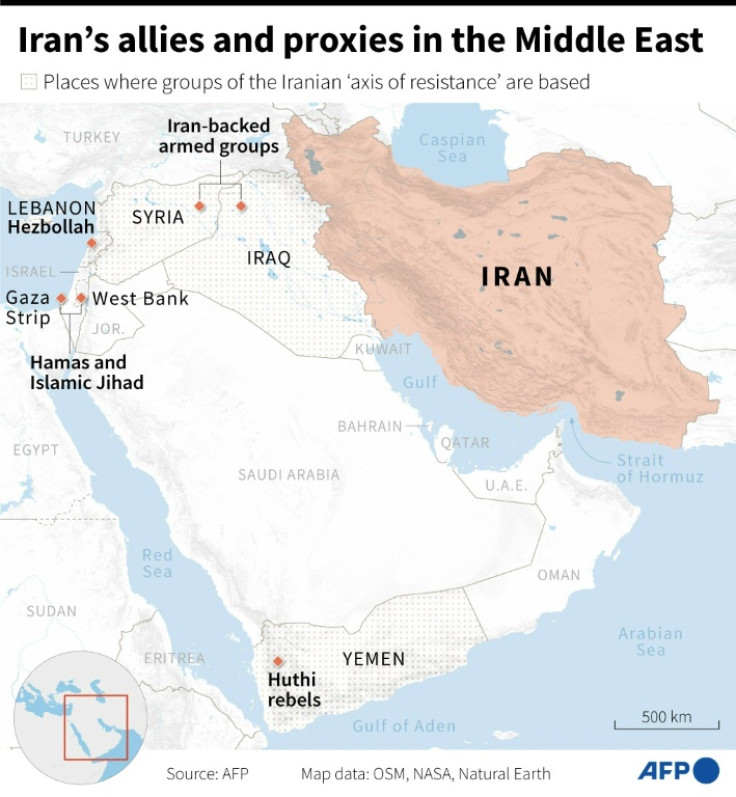
Israel faced pressure from its allies on Wednesday to refrain from striking back at Iran for its unprecedented missile and drone attack as Washington and Brussels vowed to ramp up sanctions against the Islamic republic.
British Foreign Secretary David Cameron and his German counterpart Annalena Baerbock were the first Western envoys to visit Israel and urge calm after Iran's weekend attack, against which Israel has vowed to retaliate.
Cameron said: "We're very anxious to avoid escalation and to say to our friends in Israel: It's a time to think with head as well as heart, and in many ways this is a double defeat for Iran.
"Not only was their attack an almost total failure, but also the rest of the world can now see what a malign influence they are in the region," Cameron told Times Radio.
Middle East tensions -- which have soared amid the Israel-Hamas war raging in Gaza since October 7 -- have been stoked further as Iran has vowed to hit back if its arch foe Israel launches any further attacks.
As Iran marked its annual Army Day, it showed off a range of its weapons Wednesday, including attack drones and longer-range ballistic missiles, in a military parade in Tehran.
President Ebrahim Raisi hailed the weekend attack, launched in response to a deadly strike on Iran's Damascus consulate widely blamed on Israel, and warned that "the slightest act of aggression" by Israel would lead to "a fierce and severe response".
In the large-scale assault from late Saturday, Iran and allied groups launched over 300 missiles and drones carrying a combined payload of 85 tonnes at Israel, according to the Israeli army.
Damage and casualties were limited as Israel's air defences intercepted most of them, an effort joined by US, British, French and Jordanian forces.
Israel's military chief Herzi Halevi has vowed "a response" to Iran's first ever direct attack, and military spokesman Daniel Hagari also stressed that Iran would not get off "scot-free".
It remained unclear how and when Israel might strike, and whether it would target Iran directly or attack its interests or allies abroad in places such as Lebanon, Syria, Iraq and Yemen.
Israel's top ally the United States has made clear it won't join any attack on Iran and has called for de-escalation, as have a host of other Western and Arab leaders.
Washington has vowed instead to level more sanctions targeting Iran's missile and drone programme, its Islamic Revolutionary Guard Corps and the Iranian defence ministry.
US National Security Advisor Jake Sullivan said the new measures "will continue a steady drumbeat of pressure to contain and degrade Iran's military capacity and effectiveness and confront the full range of its problematic behaviours".
Germany's Baerbock said that Berlin and Paris were in favour of a European sanctions regime against Iranian drones to be extended to include "missile technologies in Iran's arsenal".
She and Cameron both met Israeli President Isaac Herzog, who urged a global push to "work decisively and defiantly against the threat by the Iranian regime which is seeking to undermine the stability of the whole region".
Cameron, speaking to British broadcasters, also urged the G7 to adopt new "coordinated sanctions against Iran", ahead of a meeting with counterparts from the Western-led grouping in Italy.
The sharply heightened Israel-Iran tensions have threatened to overshadow the Gaza war, even as deadly bombardment and combat raged on unabated in the besieged territory.
Talks toward a truce and hostage release deal have stalled for now, Qatari Prime Minister Sheikh Mohammed bin Abdulrahman Al-Thani, a key mediator, said, despite months of effort also involving US and Egyptian officials.
Israeli Prime Minister Benjamin Netanyahu told new army recruits on Tuesday that Israel is fighting Hamas "without mercy".
The military said Wednesday its aircraft had "struck over 40 terror targets throughout the Gaza Strip" over the past day and had "eliminated a number of terrorists and destroyed terrorist infrastructure".
Vast areas of Gaza have been devastated by more than six months of war, while its 2.4 million people have suffered under an Israeli siege that has blocked most water, food, medicines and other vital supplies.
The war started after the Hamas attack of October 7 resulted in the deaths of 1,170 people, mostly civilians, according to an AFP tally based on Israeli official figures.
The militants also took about 250 hostages, of whom Israel estimates 129 remain in Gaza, including 34 who are presumed dead.
Israel's devastating retaliatory offensive has killed at least 33,899 people in Gaza, mostly women and children, according to the health ministry in the Hamas-run territory.
Israel has faced growing global opposition to the relentless fighting, which has triggered a dire humanitarian crisis.
The United Nations said it would launch an appeal on Wednesday for $2.8 billion to help Palestinians in Gaza and in the occupied West Bank.
The bloodiest ever Gaza war has revived the push for a two-state solution.
The Palestinians this month formally revived an application first made in 2011, though the veto-wielding United States has repeatedly expressed opposition.
The UN Security Council was preparing to vote Thursday on an Algeria-drafted resolution for full United Nations membership for a Palestinian state, diplomatic sources said.
The UN Security Council last month adopted a resolution calling for an immediate ceasefire in Gaza but this has had no effect on the ground.
